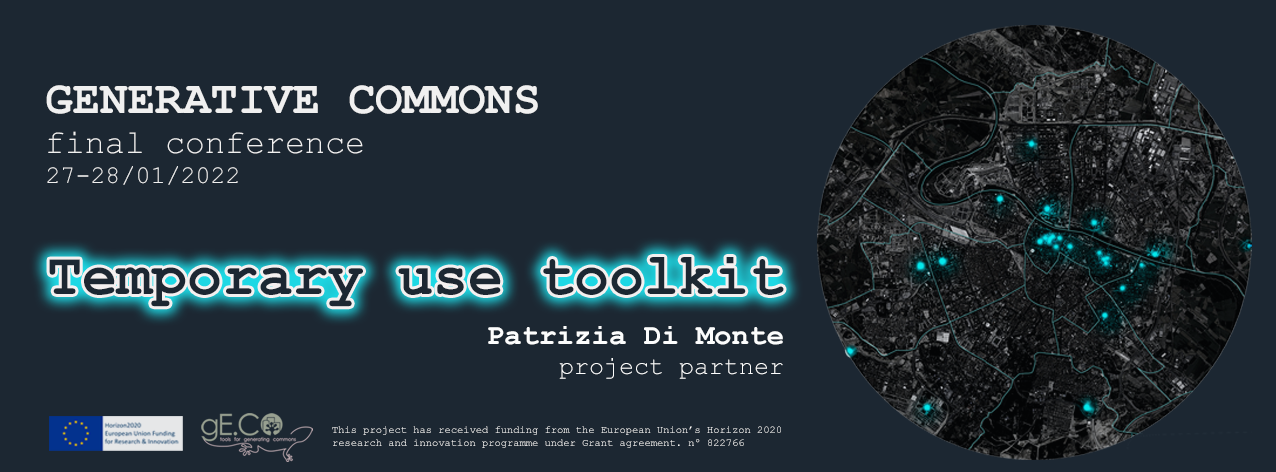«The toolkit is based on the observation of the current city planning which presents an inherent dyschrony between the Urban Planning and the urban transformation processes, generating a wide variety of unresolved issues, as shown by the many urban voids producing scars in the urban fabric. For this instance, as architects, we have perceived the necessity of designing new tools to allow more dynamic answers to the meanwhile. The Generative commons research has provided the opportunity of a common research focused on the resolution of these problems. By designing a “temporary re-use toolkit as part of a set of tools established by the program, we have focused in an exhaustive way those specific aspects related to the space and its benefic effects of urban regeneration on urban surroundings. The consideration of temporary use involves a conversation about the need to privilege an urban ecology within cities, where resources are optimised by introducing abandoned spaces into renewed life cycles. Reusing abandoned buildings – of reconstructing and renaturalising instead of constructing and urbanising – is no longer just an option, but a necessity.«
The temporary use toolkit (TUT) will facilitate the creation of flexible dynamics for both public administration and citizens that will allow activating mechanisms to reincorporate disused spaces into a new useful life cycle.
GOALS
To this end, the following goals have been established:
• Provide Methodologies and Techniques
The objective of the TUT is to establish a methodology that offers a global vision for necessary processes for the temporary reuse of abandoned buildings. The toolkit will specifically develop those aspects related to abandoned spaces by assessing the different parameters that allow for their reactivation.
• Define processes and phases related to the space reactivation.
The goal is to develop specifically those processes related to space and those circumstances necessary to assess the different parameters that allow for analysing their viability for adaptive reuse and implementation.
• Facilitate the ordering of case studies that can stage the processes addressed.
• Promote Offices of Temporary Uses (OTUs)
OTUs will manage all procedures facilitating the creation of flexible dynamics between public administration and citizens to allow for activating mechanisms to reincorporate disused spaces into a new useful life cycle.
You can join the final conference on 27th and 28 of January by registering here:

